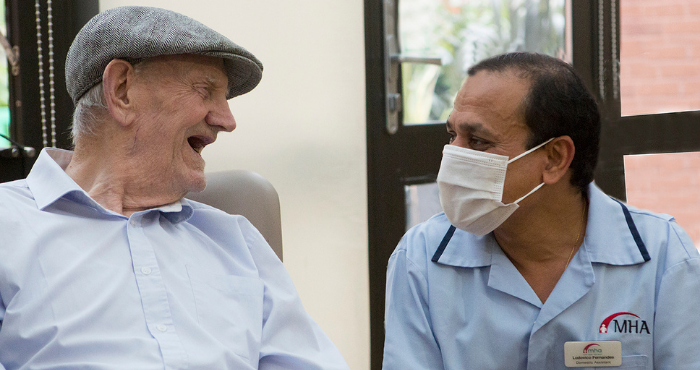- A
- A
- A
Observing Ramadan in later life
Information and advice to help older people observe Ramadan safely.
What is Ramadan?
Ramadan is the holy month of fasting for Muslims. The dates for Ramadan can change as it is based on the sighting of the new moon. Muslims across the world will excitedly start preparations to embark on a month of spiritual renewal. To view Ramadan timetables across the UK, Islamic Relief has updated information available on their website.
Ramadan in 2024 will fall during the months of March and April.
The month of Ramadan begins and ends with the appearance of the crescent moon. This is because the Muslim calendar year is shorter than the Gregorian calendar year. Ramadan begins 10–12 days earlier each year, allowing it to fall in every season throughout a 33-year cycle.
Fasting as an older person during Ramadan
Fasting is one of the five pillars of Islam. It’s an act of worship where Muslims refrain from food and drink from sunrise to sunset. However, Ramadan is so much more than fasting, it’s a period of reflection, extra prayer, charity, acts of kindness, abstaining from bad habits and connection with family and their local community.
Whilst there is no upper age limit to fasting during Ramadan, some people might be exempt including older people living with an illness or health condition such as diabetes. If you're unsure whether it is safe for you to fast, you should check with a health professional such as your GP/doctor.
Our 7 top tips for observing Ramadan in later life
-
When Ramadan is approaching, an important thing to do is plan ahead. Work out a schedule early on to make sure you have time for rest, daily exercise, prayer and meals. Try to plan meals and shopping in advance too. If you can’t get out of the house, you could try getting your food shopping delivered online, family and friends might be able to help or shopping volunteers.
-
Try to save your energy. If you do any physical activity, avoid peak hours in the sun and stay in the shade.
-
Ramadan is a great chance to reach out to someone you haven't spoken to in a while or to keep in touch with people. Especially as you might be feeling tired and hungry but connecting with others might give you the boost you need to keep going and stay motivated.
-
When thinking about food, ensure you always have the Sehri (morning) meal try to eat high-energy food like oats, nuts, and dates. Remember not to over-eat at Iftar (a period when breaking your fast in the evening). Avoid fried and fatty foods. Try to have the meal at Sehri just before sunrise, not at midnight. This will spread out your energy intake more evenly during the day. There’s further guidance on having a healthy fasting period from the British Nutrition Foundation.
-
Health experts suggest a small walk after breaking the fast which helps in activating blood circulation and relaxing muscles.
-
Remember to keep hydrated during breaks in fasting. Choose sugar-free types of fizzy drinks, decaffeinated drinks, and cordials or water. Avoid adding sugar to hot drinks; use a sweetener if needed.
-
Most importantly, remember to be kind to yourself during this time.
Other organisations offering support
- Are you looking after someone during Ramadan? There’s some useful guidance available for carers from Action for Carers
- If you're living with diabetes, there is guidance available from Diabetes UK
- If you're living with glaucoma, there is guidance available from Glaucoma UK
- If you're living with or supporting someone living with dementia, Alzheimer's Society have some useful guidance on having a dementia-friendly Ramadan
- If you have concerns about observing Ramadan during Covid-19, the Muslim Council of Britain have issued some safety guidance
Webpage last updated: September 2023.

Support MHA during Ramadan
A donation from amazing people like you can help people across the UK, live later life well.
Donate Now